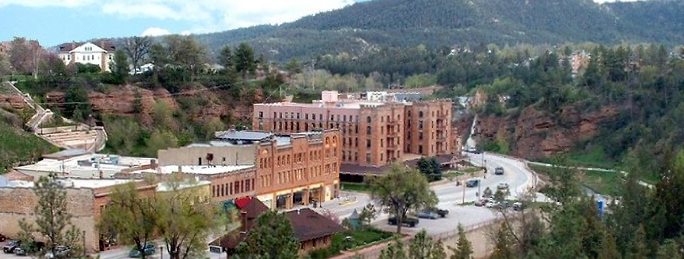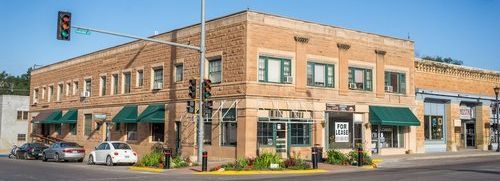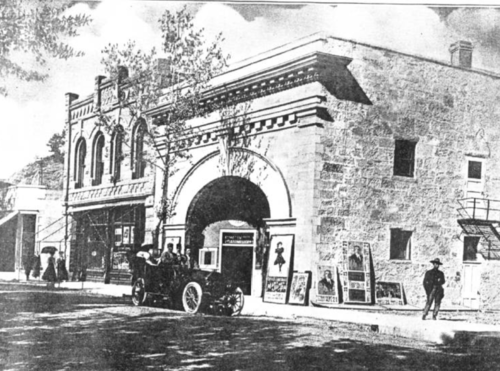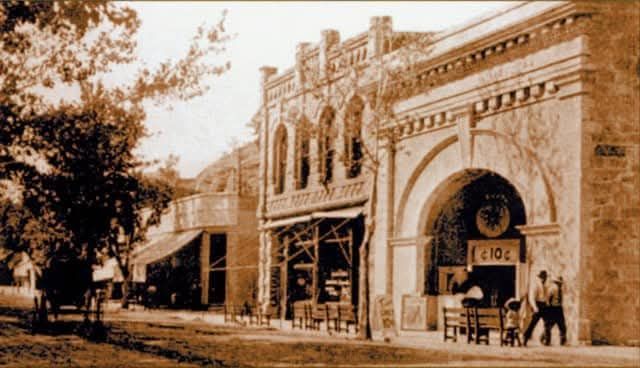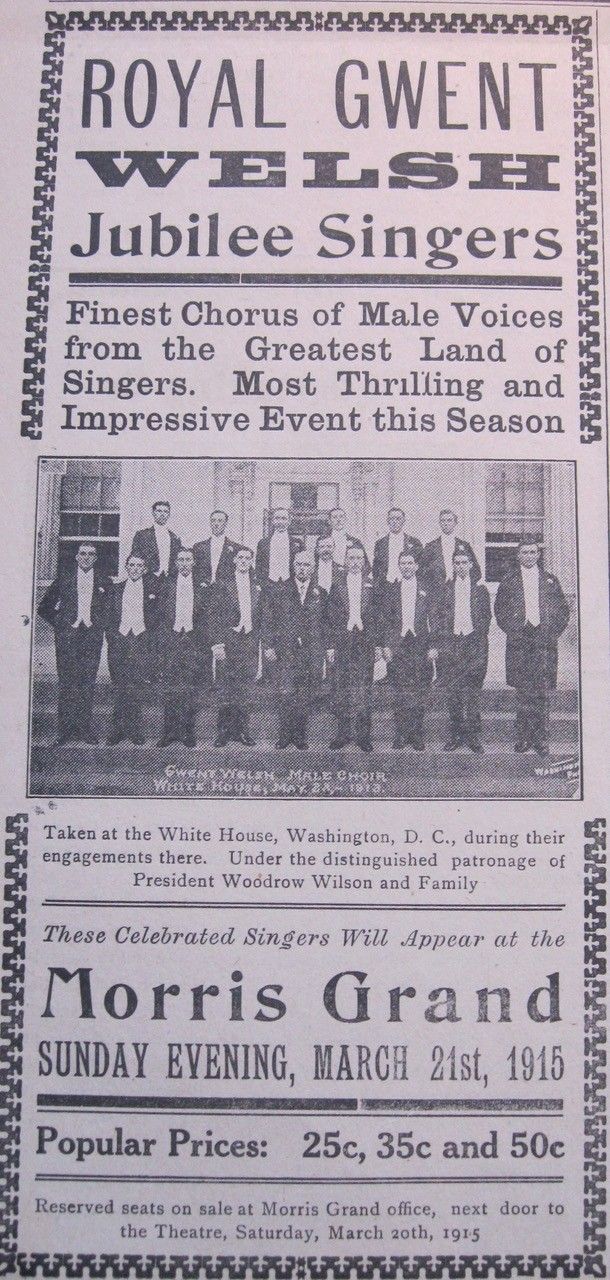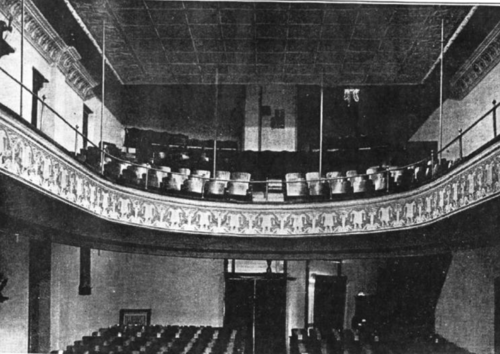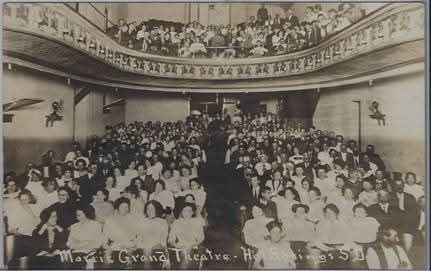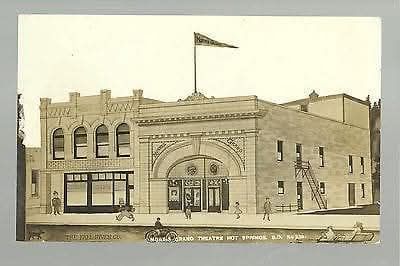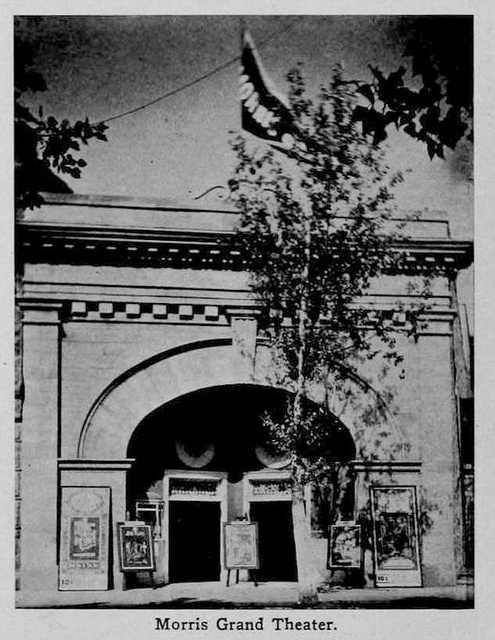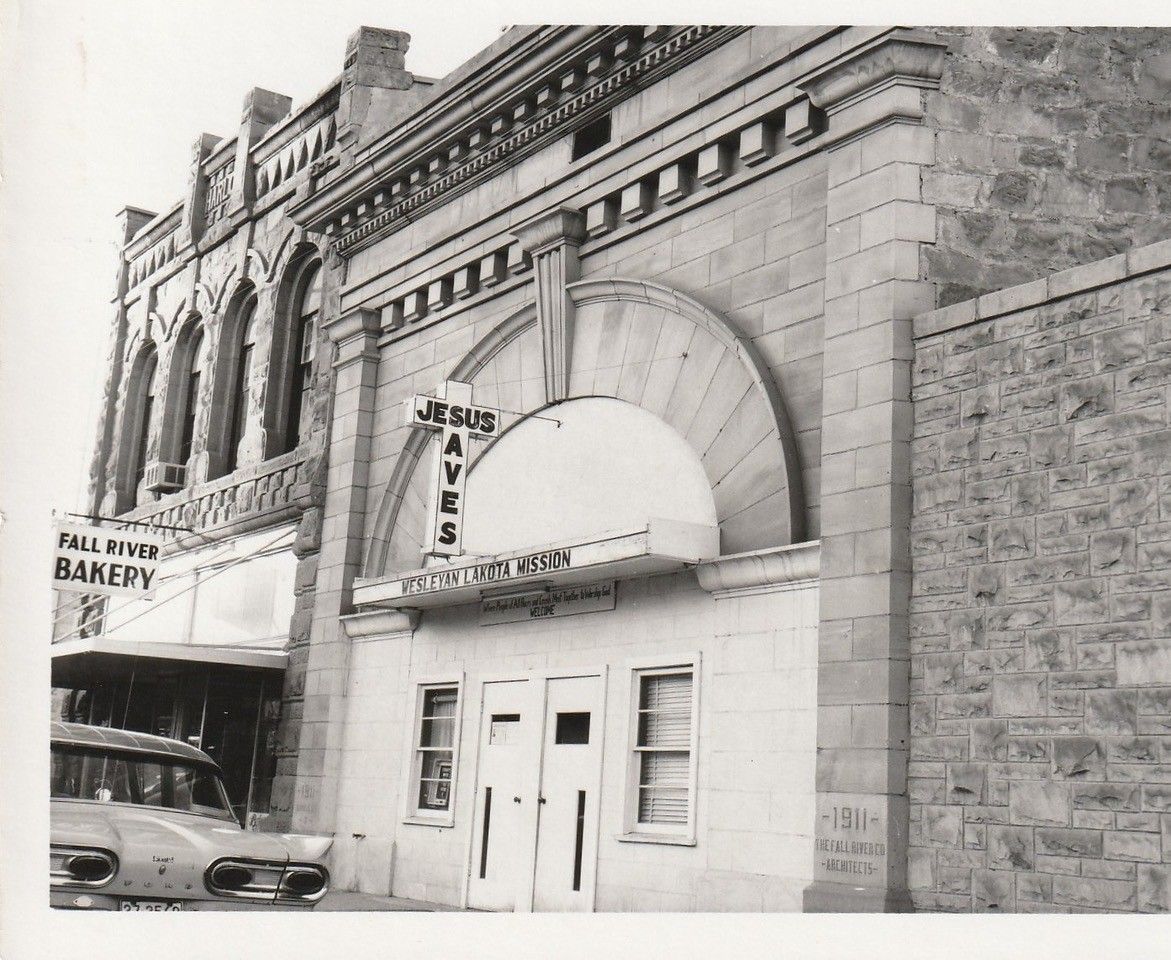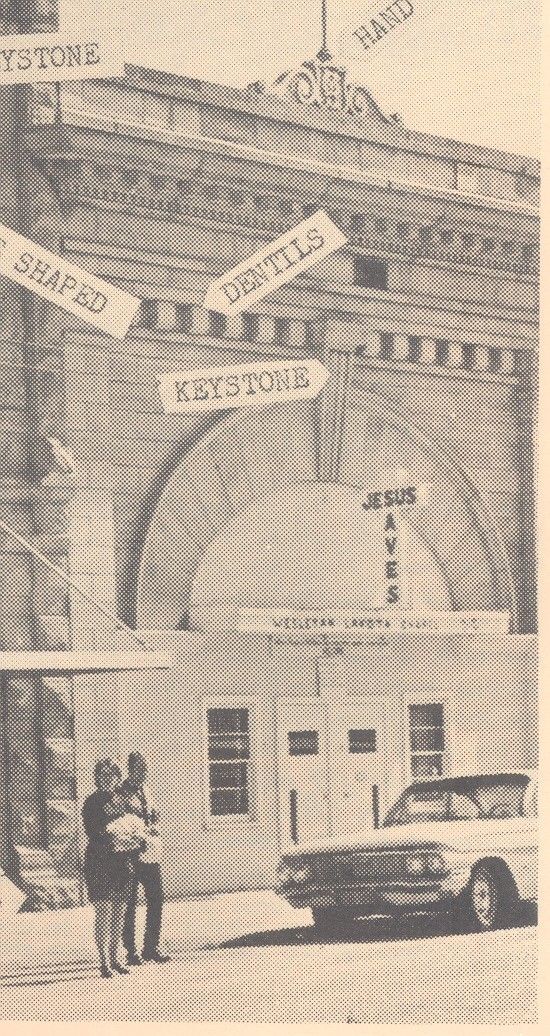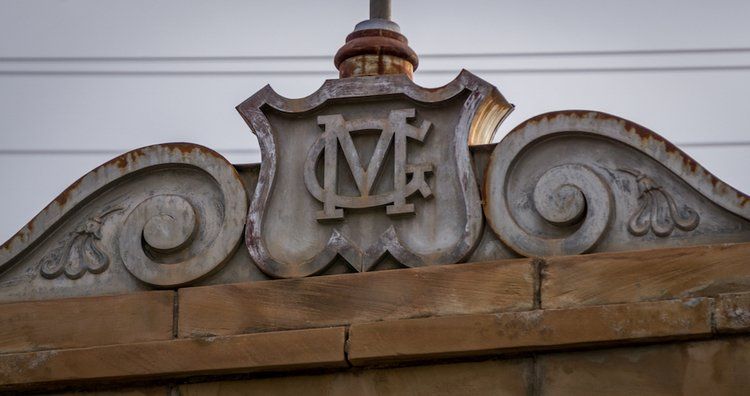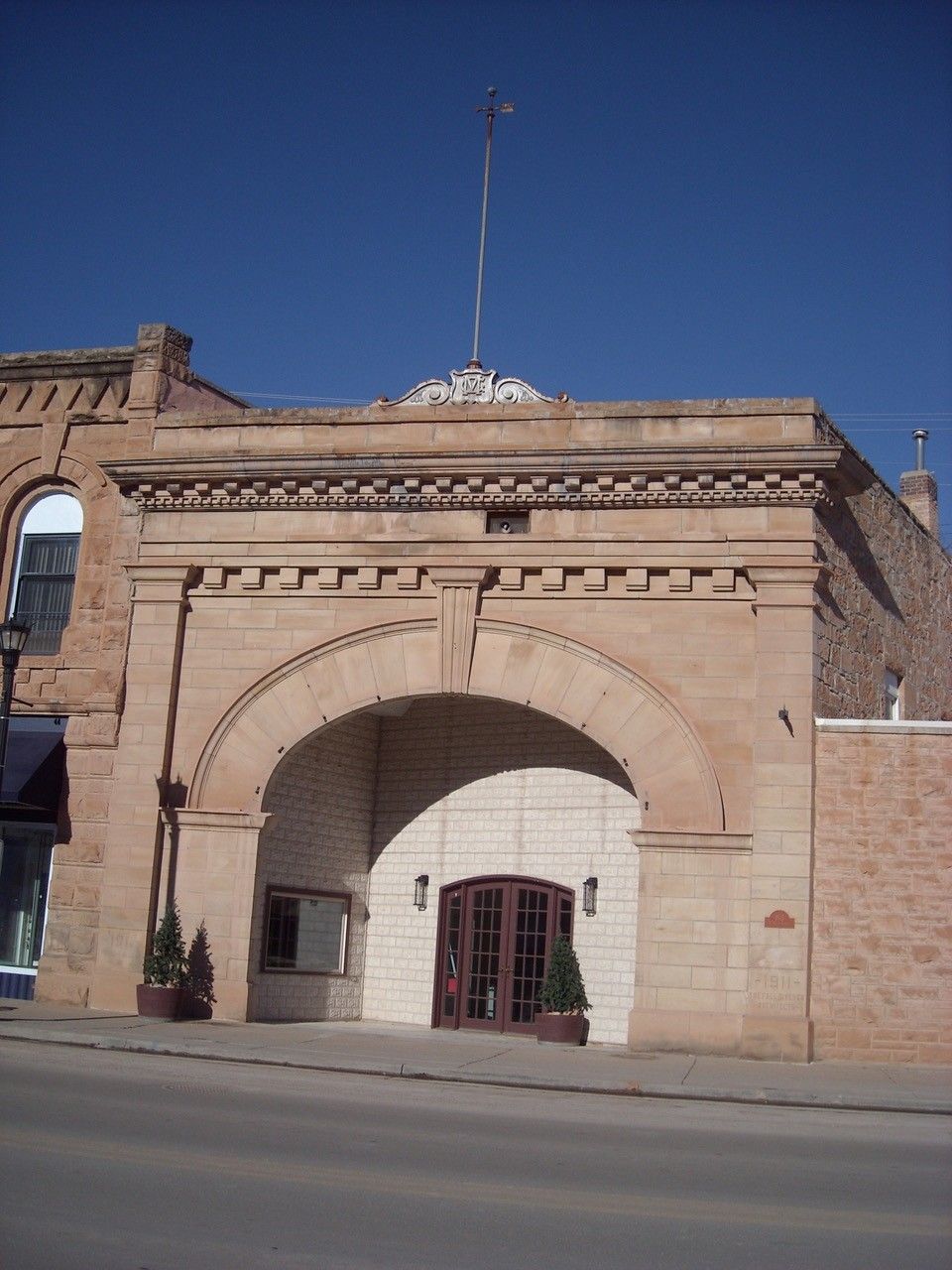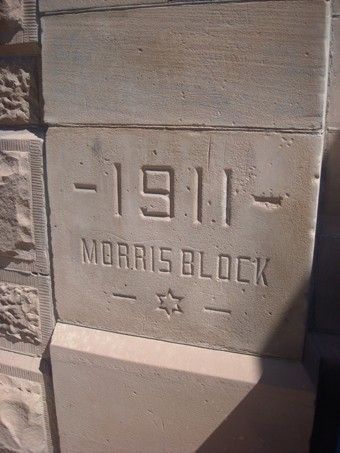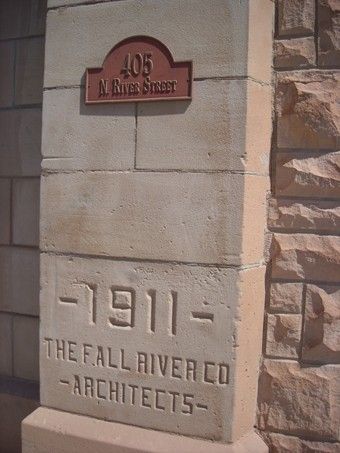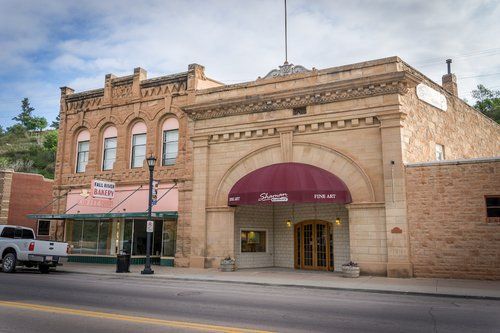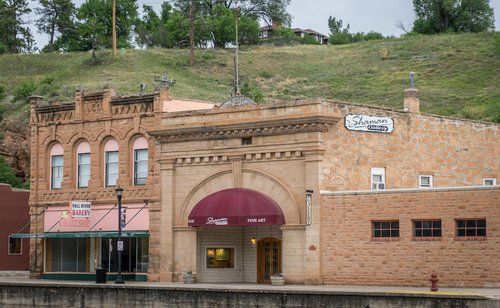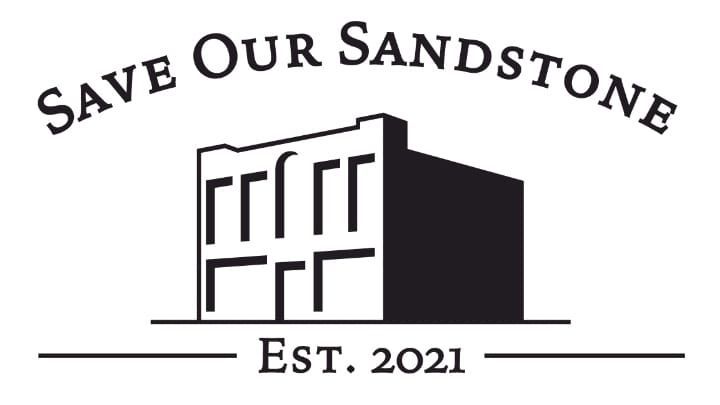Morris Grand Theatre
🧱 Morris Grand Theater
Address: 405 North River Street, Hot Springs, SD
Built: 1911 — Grand opening October 30, 1911
First Occupant: Morris Grand Theater Opera House
Current Occupant (2025): Colin Properties LLC — The Art Gallery on River Street
Sandstone Quarry: Burke’s Quarry
Architect: John P. Eisentraut
Contractor: M. Block
Architectural Style: Neo-classical commercial — smooth-faced sandstone with classical detailing, accented by a pressed tin upper cornice.
📜 Historical Overview
In January 1911, local businessman Morris Block announced plans for a $9,000 theater adjoining the Harlou Block. By March, the budget had increased to $15,000, with plans drawn by the Fall River Company and stone sourced from Burke’s Quarry. Construction progressed through summer, and on October 30, 1911, the Morris Grand Theater Opera House opened to the public.
The theater’s design blended classical formality with a commanding round-arched entry. Smooth-faced sandstone, two bands of dentils, and pilasters reinforced its neo-classical style, while the pressed tin cornice reflected new architectural fashions appearing in Hot Springs after 1905.
In October 1919, theater manager J.W. Linn purchased the building, furnishings, and equipment from the Bank of Hot Springs. Linn planned significant upgrades:
- Excavating into the hillside to move the stage back 24 feet, adding 120 seats
- Installing steam heat and other modern conveniences
- Creating a 24-hour cafeteria in the basement — a first for Hot Springs
By December 1919, the venue was renamed the Black Hills Theater.
📍 Later Uses & Adaptations
- 1950s: Briefly used as a firing range
- c. 1964: Purchased by Wesleyan Indian Missions Church; became the Lakota Chapel
- 1979: Restoration removed paint from sandstone façade, recessed entryway, added heavy redwood doors, and installed a cross above the entrance as part of Main Street restoration efforts
- 2000: Purchased by Adam Heath; fully restored for use as an art gallery, including uncovering original entry tilework, restoring the upstairs balcony, and adding a grand staircase
- 2017: Sold to Mike and KC Keruthers, continuing as the Morris Grand Gallery
- 2022: Sold to Colin Properties LLC, operating as The Art House art gallery, including replication of the original entry tilework
🏛 Cultural Notes
During the silent film era, the theater hosted live programs — including a lecture by Cole Younger of the Jesse James Gang, titled “What Life Has Taught Me” following his 25-year prison term.
🔍 Research Notes & Requests
Save Our Sandstone is still seeking:
- Interior photographs before and after the 1919 renovation
- Documentation on the 24-hour cafeteria’s operation
- Images or programs from its live performance era
QR Code Info: Built in 1911 for $15,000, the Morris Grand Theater featured a neo-classical style with a round-arched entry and smooth-faced sandstone. It hosted a range of performances, including silent films and a lecture by Cole Younger of the Jesse James Gang. Over the years, it transitioned to different uses, including a church and art gallery, with ongoing restorations highlighting its original features.
